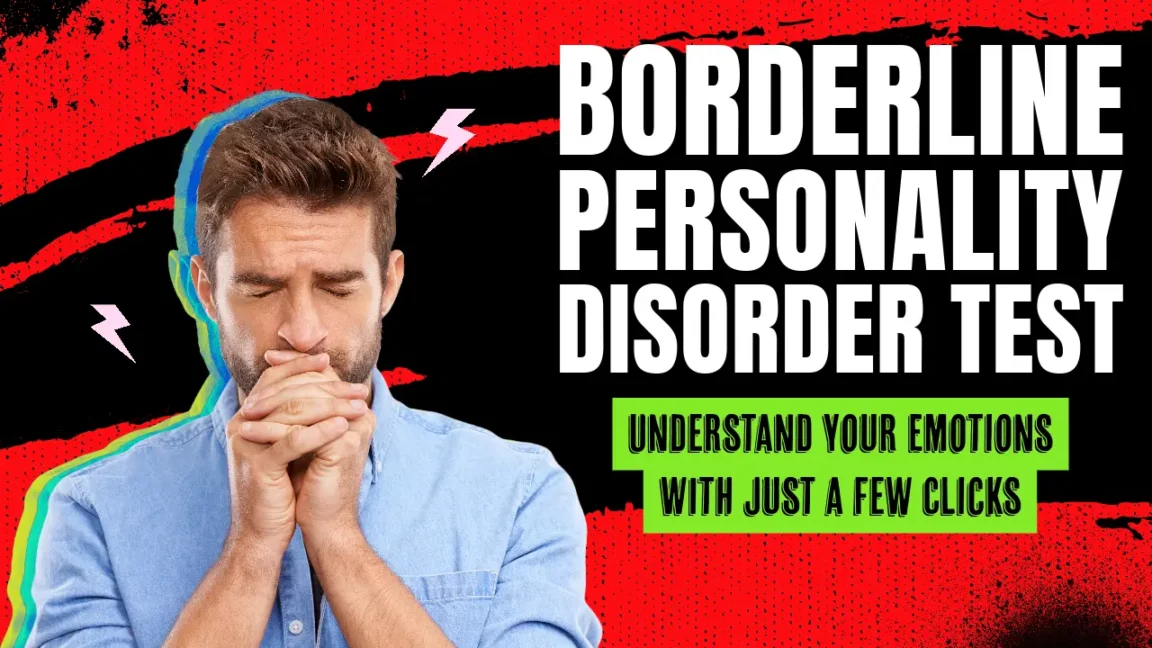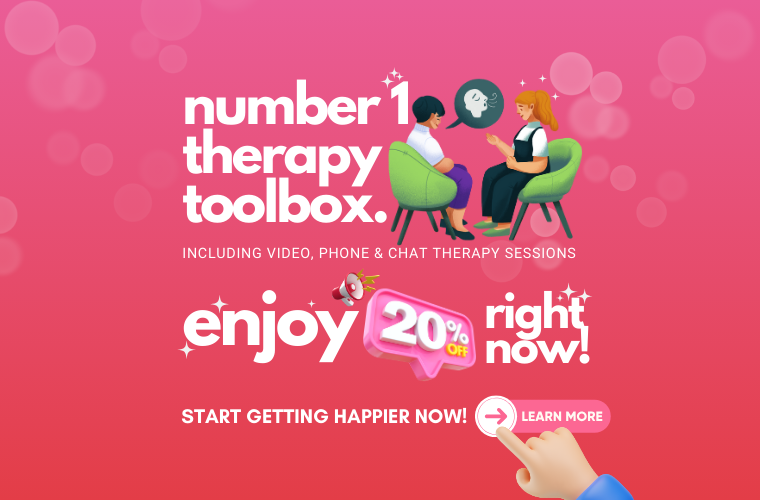The Borderline Personality Disorder Test
Navigating our emotional world can often be challenging, especially when faced with intense, fluctuating feelings that seem hard to comprehend. Thus, we designed our user-friendly Borderline Personality Disorder Test to help you peel back the layers of your emotional experiences and guide you toward a deeper understanding of yourself. This test for Borderline Personality Disorder (BPD Test), rooted in psychological science, promises a sensitive approach to help you navigate through your emotional world, providing a step towards enlightenment and self-improvement.
Understanding Borderline Personality Disorder (BPD)
Borderline Personality Disorder (BPD) is a complex mental health condition that affects emotional regulation, interpersonal relationships, and self-image. People with BPD often experience mood swings, difficulty maintaining stable relationships, and impulsive behaviors. This BPD test is designed to help you identify symptoms of borderline personality disorder and encourage you to seek professional support if necessary.
The test is not a substitute for a diagnosis. BPD, including its symptoms, should always be evaluated by a licensed mental health professional using the Diagnostic and Statistical Manual of Mental Disorders, Fifth Edition (DSM-5) criteria.
Who Is This BPD Test For?
This test is designed for individuals who:
- Experience frequent mood swings or emotional instability.
- Have difficulty maintaining relationships due to intense feelings or fears.
- Are curious about their symptoms of BPD and want to explore whether they align with the diagnostic criteria.
If you’re concerned about your mental health, taking this test could be a step toward better understanding your experiences.
How Accurate Is This Test?
This test uses general symptoms based on the criteria for borderline personality disorder outlined in the DSM-5. However, only a qualified and licensed mental health professional can confirm a diagnosis of BPD. Use this test as an initial diagnostic tool, not as a definitive conclusion.
Symptoms of Borderline Personality Disorder (BPD)
Borderline Personality Disorder can present differently in individuals. Common symptoms include:
- Emotional instability and frequent mood swings.
- Intense fears of abandonment or rejection.
- Impulsive behaviors that may impact one’s quality of life.
- Unstable self-image or a lack of clear identity.
If you identify with these symptoms of BPD, this test can help you reflect on your experiences and guide you toward professional help.
Treatment Options for BPD
Treatment for Borderline Personality Disorder often involves a combination of therapy and support.
- Dialectical Behavior Therapy (DBT): This evidence-based approach is one of the most effective treatments for BPD. It focuses on building emotional regulation skills, improving relationships, and reducing self-destructive behaviors.
- Medication may help manage specific symptoms, such as mood swings or anxiety.
- Lifestyle adjustments and self-care strategies can further improve your quality of life.
A diagnosed BPD treatment plan tailored by a licensed mental health professional can significantly improve outcomes.
Why Take This Borderline Personality Disorder Test?
This test can help you:
- Reflect on possible symptoms of borderline personality disorder.
- Gain a better understanding of the diagnostic criteria for BPD.
- Take the first step toward seeking help from a licensed mental health professional.
Why Choose Our Borderline Personality Disorder Test?
Our Borderline Personality Disorder Test is a diagnostic tool developed in alignment with the Diagnostic and Statistical Manual of Mental Disorders (DSM) guidelines, recognized by the American Psychiatric Association. It is designed to identify the symptoms of BPD accurately. It is a preliminary step before consulting a licensed mental health professional.
Frequently Asked Questions (FAQs)
1. Can this test diagnose me with Borderline Personality Disorder?
No. Only a diagnosis from a licensed mental health professional can confirm BPD based on the DSM-5’s diagnostic criteria.
2. What are the common symptoms of BPD?
Common symptoms of borderline personality disorder include emotional instability, impulsive behaviors, unstable relationships, and self-image issues.
3. What is Dialectical Behavior Therapy (DBT)?
DBT is a specialized therapeutic approach that helps individuals with BPD improve their emotional regulation and interpersonal skills. It is considered a leading treatment option for this condition.
4. Why should I seek professional help?
BPD, including its emotional and relational challenges, can significantly impact your quality of life. A professional can create a personalized plan to address your needs effectively.
Expert Insight
Dr. Marsha Linehan, a psychologist and author, significantly impacted our understanding of BPD through her development of Dialectical Behavior Therapy (DBT). Her work illustrates that understanding and managing our emotional world is pivotal for personal growth and healthy relationships. Engaging with this test propels you to a journey towards greater self-understanding and wellness.
By diving into our Borderline Personality Disorder Quiz (BPD Quiz), you take a courageous step towards unearthing your emotional depth, providing a foundational step towards enhanced self-awareness and improved mental wellness. Your journey is deeply personal; every effort is a testament to your strength and desire for a harmonious life.
Features of the Borderline Personality Disorder Test
- Comprehensive Assessment: The test covers a wide range of symptoms associated with BPD, including mood swings, unstable relationships, and feelings of emptiness.
- Alignment with DSM Criteria: Developed in line with the latest DSM criteria, ensuring a reliable and valid diagnostic approach.
- Confidential and Secure: Privacy and confidentiality of your responses are guaranteed.
- Instant Feedback: Receive immediate insights upon completion of the test.
- Resource for Mental Health Professionals: An invaluable tool for therapists and counselors in diagnosing BPD.
How the Test Helps
- Identifying Symptoms of BPD: Helps in recognizing the various symptoms associated with BPD, such as intense anger, mood swings, and unstable relationships.
- Differentiating from Other Disorders: Distinguishes BPD symptoms from other related conditions like Bipolar Disorder, Depression, Anxiety, and Binge Eating.
- Guiding Towards Professional Help: Encourages seeking advice from a licensed mental health professional for a comprehensive diagnosis and treatment.
The Role of Environmental Factors in BPD
Our test acknowledges the influence of environmental factors in the development and manifestation of BPD symptoms. Understanding these factors is crucial in the holistic management of the disorder.
Recommendations to prevent it:
Engage in mindful activities, journaling, or therapeutic interventions like Dialectical Behavior Therapy (DBT) that can help manage intense emotions and cultivate emotional stability.
Important Note:
This test is meant to provide insights but is not a substitute for professional diagnosis. For comprehensive insights and strategies, consult a healthcare professional.
Instructions:
- Ensure you’re in a calm, uninterrupted space.
- Choose the answer that resonates with you the most.
- Be honest to ensure accurate insights.
Disclaimer
This test is designed for educational purposes and personal insights and should not replace professional advice. Your responses are not recorded or shared.
Below are quizzes about Cluster B Personality Disorders You Can Take Now
Let’s Recap
The Borderline Personality Disorder Test is a helpful tool to explore whether you may have symptoms that align with the criteria for borderline personality disorder. However, it’s essential to remember that an official diagnosis can only be made by a licensed mental health professional. Early intervention, whether through therapy like Dialectical Behavior Therapy (DBT) or other methods, can improve your overall quality of life.
If you suspect you have BPD or are struggling with your mental health, consider reaching out to a trusted professional today.
- Question of
Do you experience frequent, intense mood swings?
- Never
- Rarely
- Sometimes
- Often
- Very Often
Correct Wrong
- Question of
Do you find it difficult to trust others?
- Never
- Rarely
- Sometimes
- Often
- Very Often
Correct Wrong
- Question of
Do you fear abandonment and take steps to avoid being abandoned?
- Never
- Rarely
- Sometimes
- Often
- Very Often
Correct Wrong
- Question of
Do you have a pattern of intense and unstable relationships with family, friends, and loved ones?
- Never
- Rarely
- Sometimes
- Often
- Very Often
Correct Wrong
- Question of
Do you often act impulsively in ways that could harm you (e.g., spending sprees, unsafe sex, substance abuse, reckless driving)?
- Never
- Rarely
- Sometimes
- Often
- Very Often
Correct Wrong
- Question of
Have you repeatedly threatened or attempted to harm yourself or others?
- Never
- Rarely
- Sometimes
- Often
- Very Often
Correct Wrong
- Question of
Do you experience chronic feelings of emptiness or boredom?
- Never
- Rarely
- Sometimes
- Often
- Very Often
Correct Wrong
- Question of
Do you have difficulty being alone?
- Never
- Rarely
- Sometimes
- Often
- Very Often
Correct Wrong
- Question of
Do you have sudden, intense episodes of anger and difficulty controlling your anger?
- Never
- Rarely
- Sometimes
- Often
- Very Often
Correct Wrong
- Question of
Do you sometimes believe you are someone else or have thoughts that are not your own?
- Never
- Rarely
- Sometimes
- Often
- Very Often
Correct Wrong
- Question of
Is your self-image often negative and possibly fluctuating?
- Never
- Rarely
- Sometimes
- Often
- Very Often
Correct Wrong
- Question of
Have you often felt suspicious or paranoid about others’ motives or actions?
- Never
- Rarely
- Sometimes
- Often
- Very Often
Correct Wrong
- Question of
Do you see the world in black-and-white terms like all-good or all-bad?
- Never
- Rarely
- Sometimes
- Often
- Very Often
Correct Wrong
- Question of
Do you experience frantic efforts to avoid real or imagined abandonment?
- Never
- Rarely
- Sometimes
- Often
- Very Often
Correct Wrong
- Question of
Have you ever experienced dissociative feelings, feeling detached from yourself or your environment?
- Never
- Rarely
- Sometimes
- Often
- Very Often
Correct Wrong


